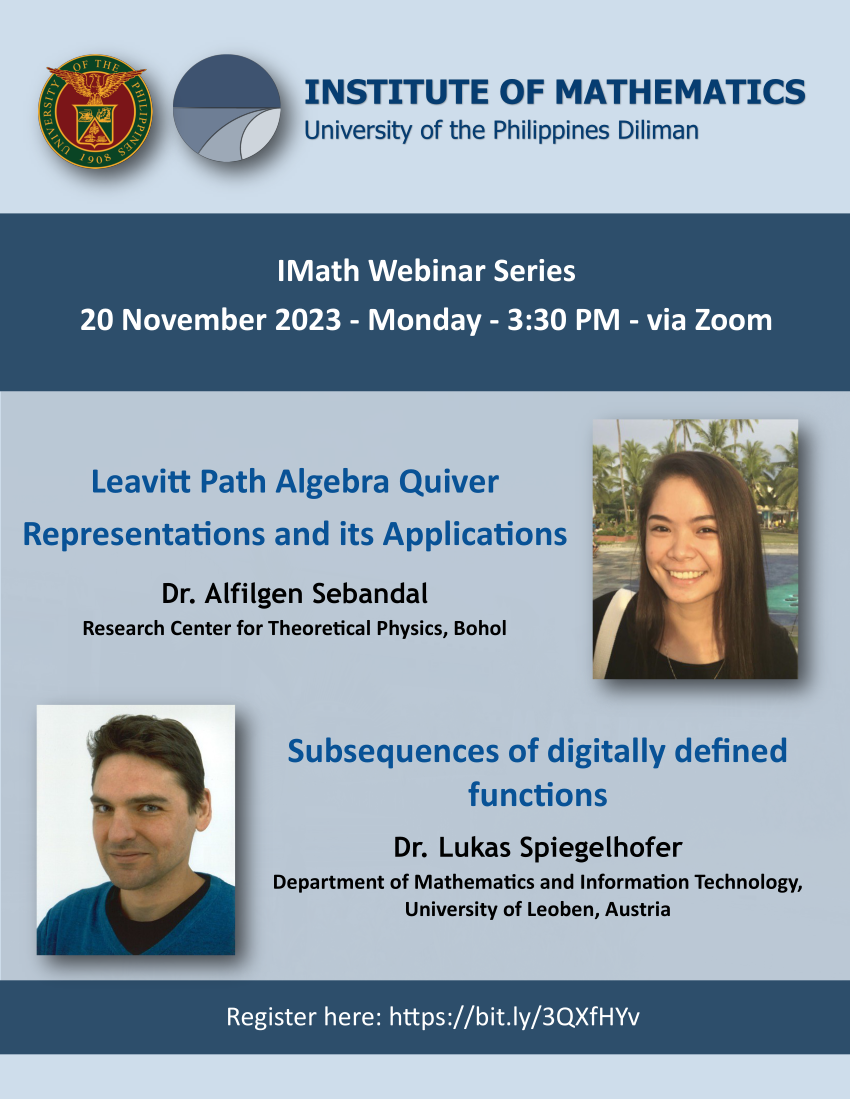IMath Webinar Series: Dr. Alfilgen Sebandal and Dr. Lukas Spiegelhofer

You’re all invited to attend our webinar on Monday, November 20, 2023 at 3:30 PM. Our speakers are Dr. Alfilgen Sebandal (Research Center for Theoretical Physics Bohol, hosted by the Groups, Geometry, and Representations Research Group) and Dr. Lukas Spiegelhofer (Department of Mathematics and Information Technology, University of Leoben Austria, hosted by the Discrete Geometry and Combinatorics Research Group).
Dr. Alfilgen Sebandal (Research Center for Theoretical Physics Bohol, hosted by the Groups, Geometry, and Representations Group)
Title: Leavitt Path Algebra Quiver Representations and its Applications
Abstract: There is a correspondence between quiver representations and path algebras. In this talk, we will see Leavitt Path algebras as a special case for such representation and how it will take a role in its classifications in relation to classifications in talented monoids.
Dr. Lukas Spiegelhofer (Department of Mathematics and Information Technology, University of Leoben Austria, hosted by the Discrete Geometry and Combinatorics Group)
Title: Subsequences of digitally defined functions
Abstract: We give an overview of recent results obtained by the speaker, as well as pointers to future research topics. This includes theorems on sparse subsequences (such as subsequences indexed by arithmetic progressions with large common difference, the sequence of cubes, or the sequence of prime numbers) of certain morphic sequences. These sequences are defined by a substitution on a finite alphabet, and appear in areas as diverse as computer science, or the theory of dynamical systems. In particular, we are led to the important notion of the level of distribution of a sequence, which is a fruitful concept also in the context of digital expansions.
The classical base-\(q\) expansion of an integer is closely connected to the question of divisibility of binomial coefficients. In particular, the 2-adic valuation (the exponent of 2 in the prime factor decomposition) of binomial coefficients is not completely understood yet. We will consider this case more closely, and point out recent results, and open problems.
